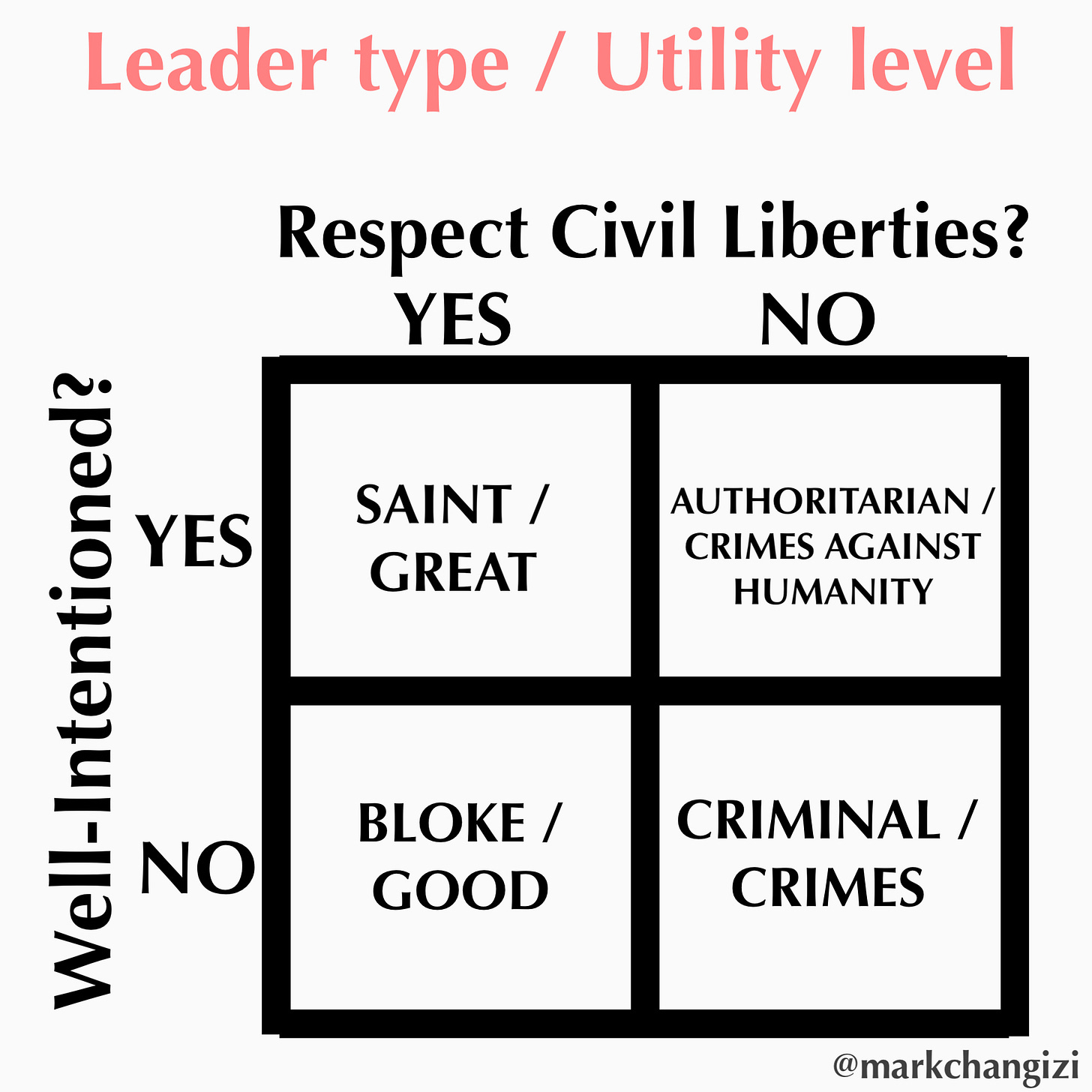What’s more important? Being well-intentioned, or respecting civil liberties?
A new variety of 2D political space
One broad-scale way to think about the space of political positions — one that’s different than the usual Nolan personal-vs-economic freedom space — is to consider whether the policies are
(a) well-intentioned, and
(b) civil-liberties-respecting
The first broadly concerns utilitarianism, but, more generally, concerns whether the policies are created with the INTENT of creating a better world in some sense.
The second concerns libertarianism, getting at whether the policies respect the rights of individuals, rather than treating the populace as a single organism with parts that can in principle be sacrificed for the greater good.
Let’s first look at the space in terms of the sorts of names we might give someone in each of the four spots in the 2 x 2 table.
CRIMINAL
Walking through it, let’s begin with a typical everyday criminal, like a thief, a murderer, or a rapist. They’re not well-intentioned (and so end up in the second row), and also don’t respect civil liberties (and so fall in the right column). Obviously a net bad to society.
AVERAGE BLOKE
The average bloke doesn’t spend his or her life trying to promote the good, and so can’t be categorized as well-intentioned per se, but generally doesn’t violate other people’s civil liberties. That puts them in the bottom left of the diagram. BUT their respect for civil liberties alone makes them a net good to society by their simply fairly participating in the free market of ideas and exchange.
SAINT
Moving up now to the upper left corner are folks with good intentions and who respect civil liberties. They have all the net good that the average mind-your-own-business blokes do, but go out of their way to make a better world SUBJECT TO not violating civil liberties. It’s a tough business, but these “saints” can sometimes be responsible for great good.
AUTHORITARIAN
Finally we move to the upper right corner, those who truly wish to make the world better, and are willing to violate civil liberties to do so. Such folks are responsible for the greatest evils that have ever occurred, the great crimes against humanity, the genocides and democides. The fact that they were well-intentioned is not at all a defense, and it only lubricated their ability to carry out and justify abhorrent evil.
Notice how, if you HAD to choose between being well-intentioned or civil-liberties-respecting, and couldn’t choose both, the clear choice is to respect civil liberties. At worst you’ll be an average bloke doing some minor good in the world. But if you’re well-intentioned, at worst you’re promoting tyranny and likely to get tangled up in societal level evil.
(1) Being well-intentioned is not what’s important. It can potentially be of help, but only when one respects civil liberties.
(2) What dominates whether one does good is whether one respects civil liberties.
(3) All things equal, respecting civil liberties leads to better policies.
(4) It is NOT the case that, all things equal, being well-intentioned leads to better policies. When civil liberties are not respected, righteous well-intentioned people are as dangerous as humans get.


